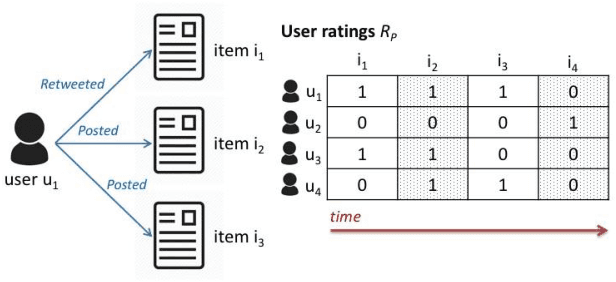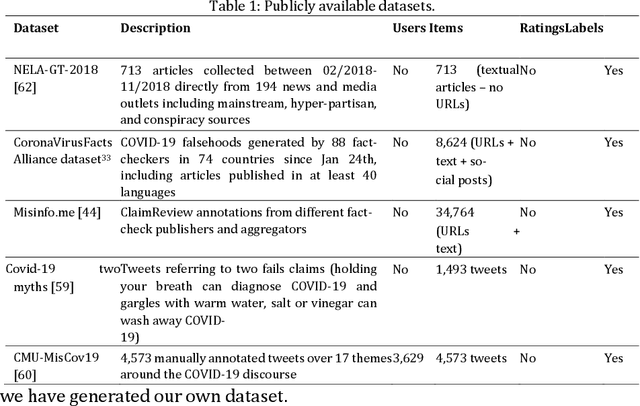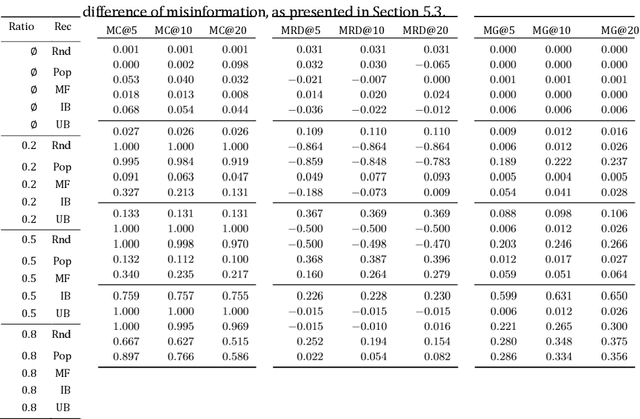Analysing the Effect of Recommendation Algorithms on the Amplification of Misinformation
Paper and Code
Mar 26, 2021


Recommendation algorithms have been pointed out as one of the major culprits of misinformation spreading in the digital sphere. However, it is still unclear how these algorithms really propagate misinformation, e.g., it has not been shown which particular recommendation approaches are more prone to suggest misinforming items, or which internal parameters of the algorithms could be influencing more on their misinformation propagation capacity. Motivated by this fact, in this paper we present an analysis of the effect of some of the most popular recommendation algorithms on the spread of misinformation in Twitter. A set of guidelines on how to adapt these algorithms is provided based on such analysis and a comprehensive review of the research literature. A dataset is also generated and released to the scientific community to stimulate discussions on the future design and development of recommendation algorithms to counter misinformation. The dataset includes editorially labelled news items and claims regarding their misinformation nature.
 Add to Chrome
Add to Chrome Add to Firefox
Add to Firefox Add to Edge
Add to Edge